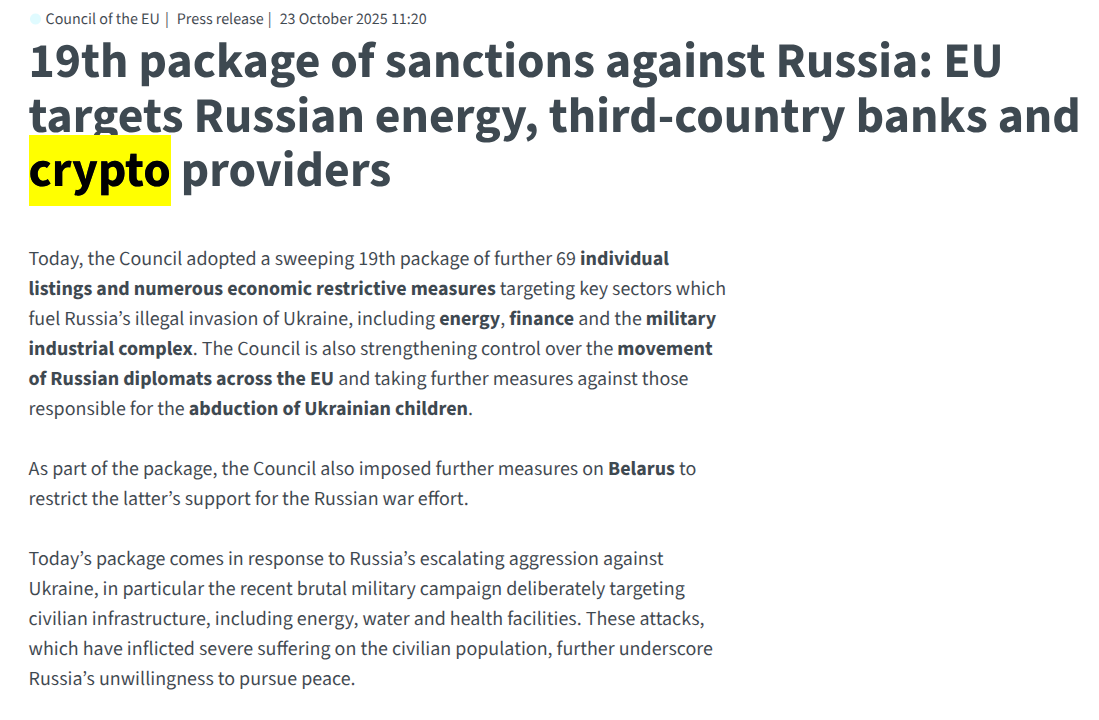
Russian oil firms have increasingly utilized digital currencies and crypto platforms to bypass international financial sanctions, as per the European Commission.
The European Union recently introduced its 19th sanctions package against Russia, marking the first time restrictions include cryptocurrency platforms since the onset of the Ukraine conflict.
These measures, adopted on Thursday, ban crypto payment providers based in Russia and the distribution of related software across the EU. Additionally, firms in Russia’s energy sector and banks, along with entities in China, Kyrgyzstan, Tajikistan, Hong Kong, and the UAE, are targeted for aiding Russia in evading sanctions.
Kaja Kallas, the EU’s high representative, stated, “We have just adopted our 19th package of sanctions. It targets Russian energy, banks, crypto exchanges, and entities in China, among others. The EU is also regulating Russian diplomats’ movements to counter destabilization attempts.”
 Nineteenth package of sanctions against Russia. Source: European Council
Nineteenth package of sanctions against Russia. Source: European Council
Related: Privacy is ‘constant battle’ between blockchain stakeholders and state
The EU’s sanctions also include a ban on the A7A5 stablecoin, supported by the Russian ruble, which authorities labeled as “a significant tool for financing actions that support the aggression.”
Notably, a prohibition has been placed on the Kyrgyz issuer of this stablecoin and an unidentified platform where large trading volumes occurred. A ban on transactions affecting at least eight banks and oil firms in regions like Tajikistan, Kyrgyzstan, Hong Kong, and the UAE has been established in relation to bypassing EU sanctions.
Previously, on Sept. 19, the EU proposed restricting Russian crypto platforms, leading to discussions about banning the A7A5 stablecoin.
Russian oil companies have reportedly leveraged cryptocurrencies such as Bitcoin and Tether’s USDt in attempts to evade sanctions, conducting transactions amounting to tens of millions monthly, as indicated by Reuters.
In a recent development, two Russian nationals living in New York were accused of facilitating payments for sanctioned firms, with Iurii Gugnin facing charges including the laundering of over $540 million through his companies, Evita Investments and Evita Pay.



